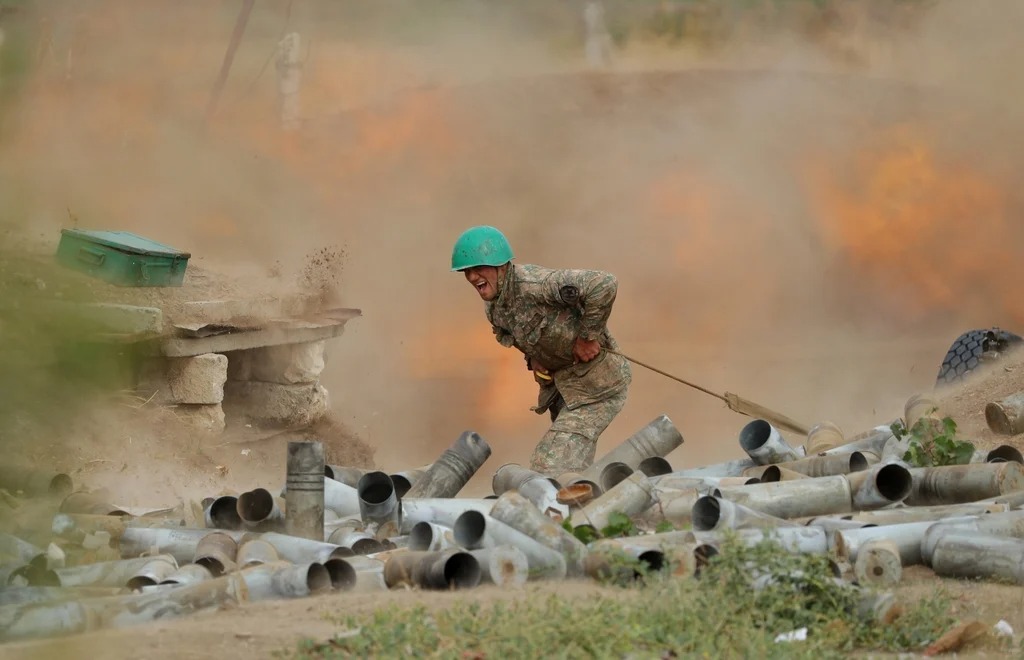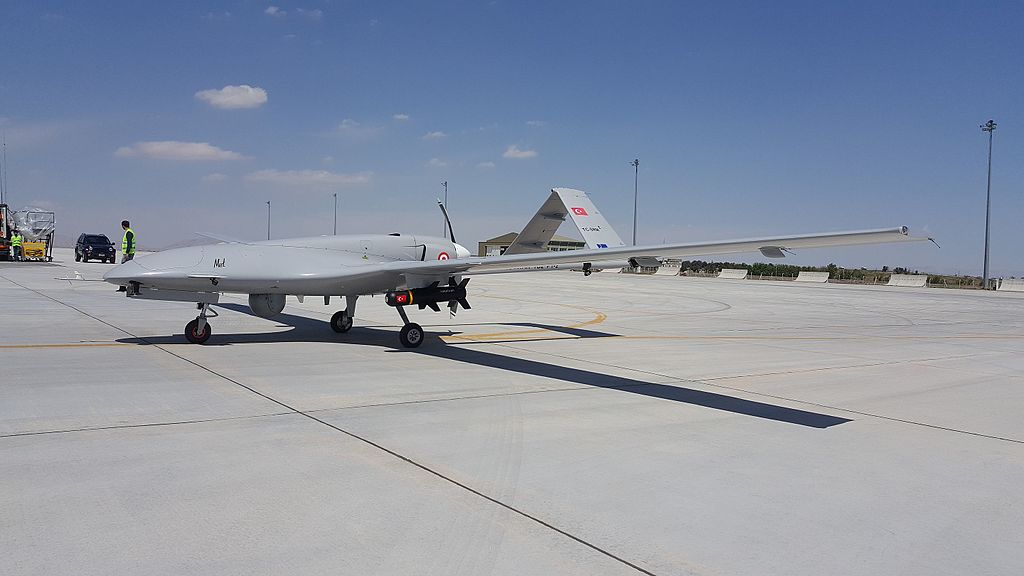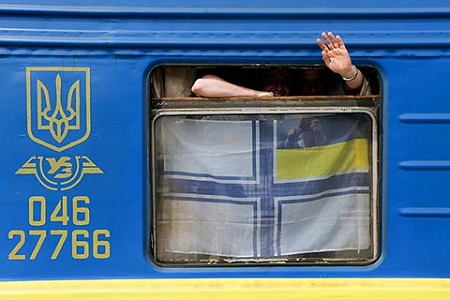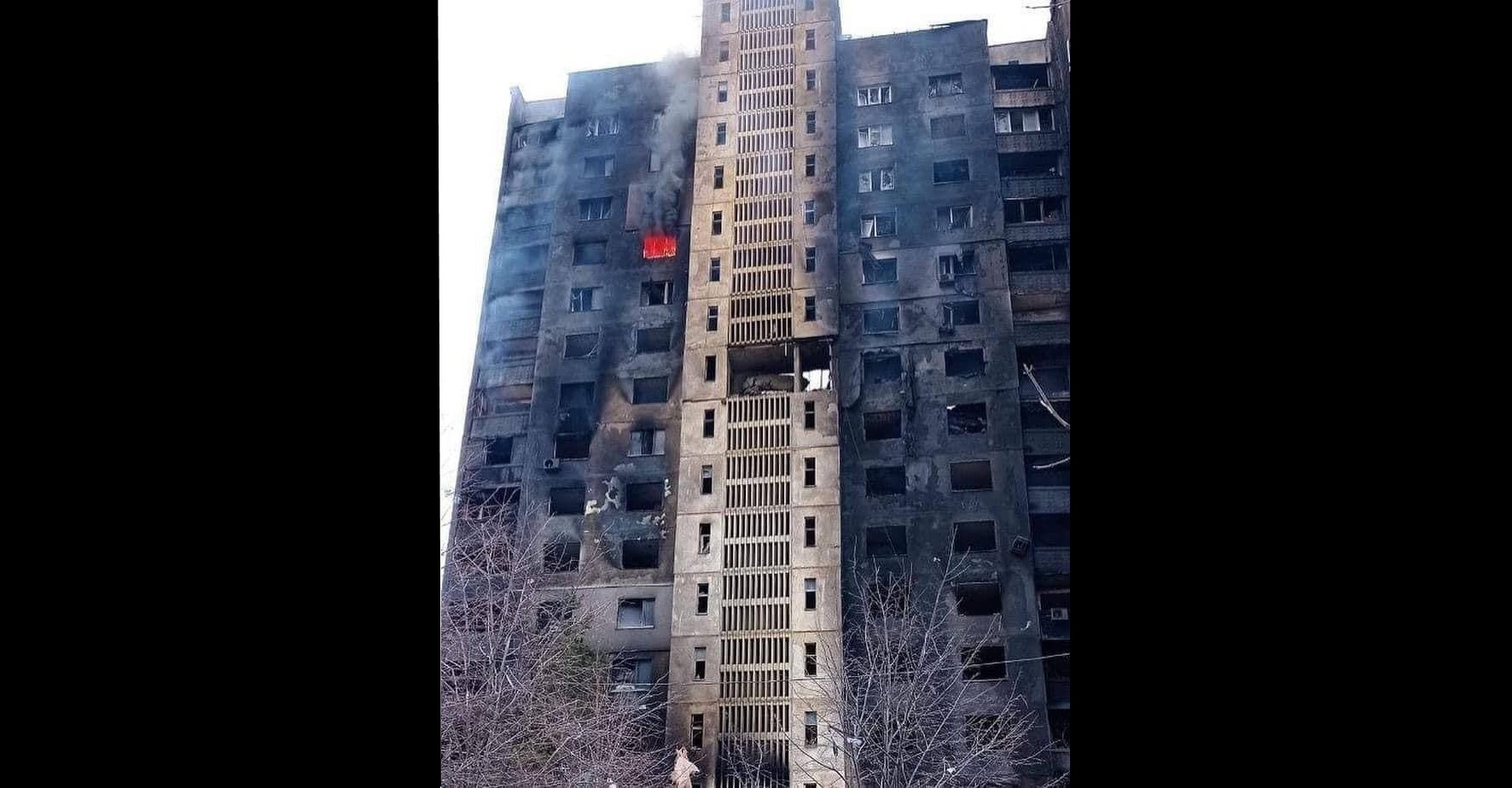Russia has tried to maintain its sphere of influence in Eastern Europe and the Caucasus ever since the collapse of the Soviet Union. Russia’s attempts have ranged from cyberattacks in the Baltic states to occupying territory in Moldova’s Transnistria, Georgia’s Abkhazia and South Ossetia, and Ukraine’s Crimea and Donbas. Russia is also monitoring the protest movements in Belarus and Kyrgyzstan to determine how it might intervene, something that is becoming increasingly more likely in 2021.
In Moldova, Georgia, and Ukraine, Russia has continuously tried to destabilize these countries as all three have aspired to become members of the European Union (EU). These attempts have ranged from supporting pro-Russian politicians and leaders to launching or supporting military incursions in these countries.
By aiding the self-proclaimed leaders in Moldova’s Transnistria, Georgia’s Abkhazia and South Ossetia, and Ukraine’s Luhansk and Donetsk regions, Russia understands that these conflicts will become financial burdens for the governments of Moldova, Georgia, and Ukraine. Moreover, Georgia and Ukraine have aspired to join the North Atlantic Treaty Organization (NATO), a desire that threatens Russia. As a result, Russia has ensured that the conflicts in Georgia and Ukraine remain unresolved. (According to the Study on NATO Enlargement, aspiring members must resolve all international and territorial disputes before being invited to join the Alliance. Russia currently occupies territory in both Georgia and Ukraine.)
By creating conflicts in Georgia and Ukraine, this has presented Russia with an excuse to meddle in the affairs of the countries it wants to keep within its sphere of influence, portraying the false narrative that it is working to resolve these conflicts (despite having caused them). It is also important to stress that the self-proclaimed governments in Transnistria, South Ossetia, Abkhazia, Donetsk, and Luhanks are all backed by Russian President Vladimir Putin.
Outside of Eastern Europe, Russia has participated in the civil unrest in Venezuela, Libya, and Syria. In these cases, the former Soviet republic has opted to assist the regimes and movements of oppressive rulers in these countries. Russia has supported businesses in these states and provided military assistance to these rulers. Russian government officials have also met political figures from these countries. While Russia and the West remain at odds on how they might resolve the conflicts in Venezuela, Libya, and Syria, the citizens of these countries continue to suffer. Until significant compromises are reached, the civil unrest in these countries will remain.
As Putin continues to pursue his goals throughout the globe, Russia recently earned a small victory in the Caucasus. During the Nagorno-Karabakh conflict, Russia stepped in as an intermediary to resolve the skirmish between Armenia and Azerbaijan. While Russia did not cause the conflict (as it did in Moldova, Georgia, and Ukraine), the Russian Federation succeeded in brokering a ceasefire. The implementation of the ceasefire also came without Western assistance.
The terms of the ceasefire stated that Armenia would return the Ağdam, Kalbajar, and Lachin districts to Azerbaijan and that all economic and transport links would be unblocked. A peacekeeping center would also be established. The most notable part of the agreement, however, stated that a Russian peacekeeping force would be deployed. Per the ceasefire, the Russian forces would remain in the Nagorno-Karabakh region for five years. In other words, Russia had gained a foothold in the Caucasus, much to the chagrin of the West.
More alarming is that Putin was able to contain the Nagorno-Karabakh conflict by brokering a ceasefire without Western intervention. He has thus far succeeded in preventing the conflict from escalating into an even greater crisis. The fact that Russian peacekeepers were sent to mitigate the ceasefire also sends a message to the international community that Russia controls the situation in the region. These developments could spell trouble for Eastern Europe.
Following its victory in the Caucasus, Russia may try to replicate its success and draft ceasefires that favor its puppet governments in Transnistria, South Ossetia, Abkhazia, and the Donbas. This would include giving these regions greater autonomy, allowing citizens in these regions to vote for their own political leaders, and legitimizing the puppet governments in these states. These actions would violate the sovereignty and territorial integrity of Moldova, Georgia, and Ukraine. Moreover, it could grant Russian troops the ability to occupy territory in these countries for several years, adopting the false narrative that they are acting as peacekeepers.
In Ukraine, Russia has been pushing for terms that favor the separatists in the Donbas. Russia has reaffirmed its stance that it has not been involved in the conflict, although there is overwhelming evidence that states that Russian forces started the conflict. While France and Germany have continued to support Ukraine in the cause, a sense of “Ukraine fatigue” has emerged. As the conflict continues, the EU could try to force through a deal to resolve the seven-year crisis. This would be a victory for the Russians and another loss for the West.
Unlike Ukraine, where Western dignitaries have gathered to discuss the ongoing conflict, Moldova appears to have been forgotten as Russia has been occupying Transnistria since the 1990s. The same can be said about Georgia’s Abkhazia and South Ossetia regions, which also seem to be neglected. In both instances, Russia is in control of the situation, and it does not appear that the Russian forces will leave these conflict areas.
Overall, Russia’s success in the Caucasus should be a cause for concern. The Russian Federation brokered a ceasefire between Armenia and Azerbaijan while the West failed to respond. Russian forces will occupy the Nagorno-Karabakh for five years, thus allowing Russia to spread its influence in the Caucasus. Russia could try to replicate this strategy in Moldova, Georgia, and Ukraine. Russia will want to grant the self-proclaimed republics in Transnistria, Abkhazia, South Ossetia, Donetsk, and Luhansk greater autonomy while also allowing Russian troops to occupy these disputed territories. Russia’s continued presence would weaken the pro-Western governments in Moldova, Georgia, and Ukraine, and it could ultimately strengthen Putin’s hand as he continues to try and dictate the state of affairs in Russia’s neighboring states.
Therefore, with Russia’s recent success in the Nagorno-Karabakh conflict, and with Russia’s continued ambitions in Moldova, Georgia, and Ukraine, is Putin finally turning into the master puppeteer he has been described to be?






